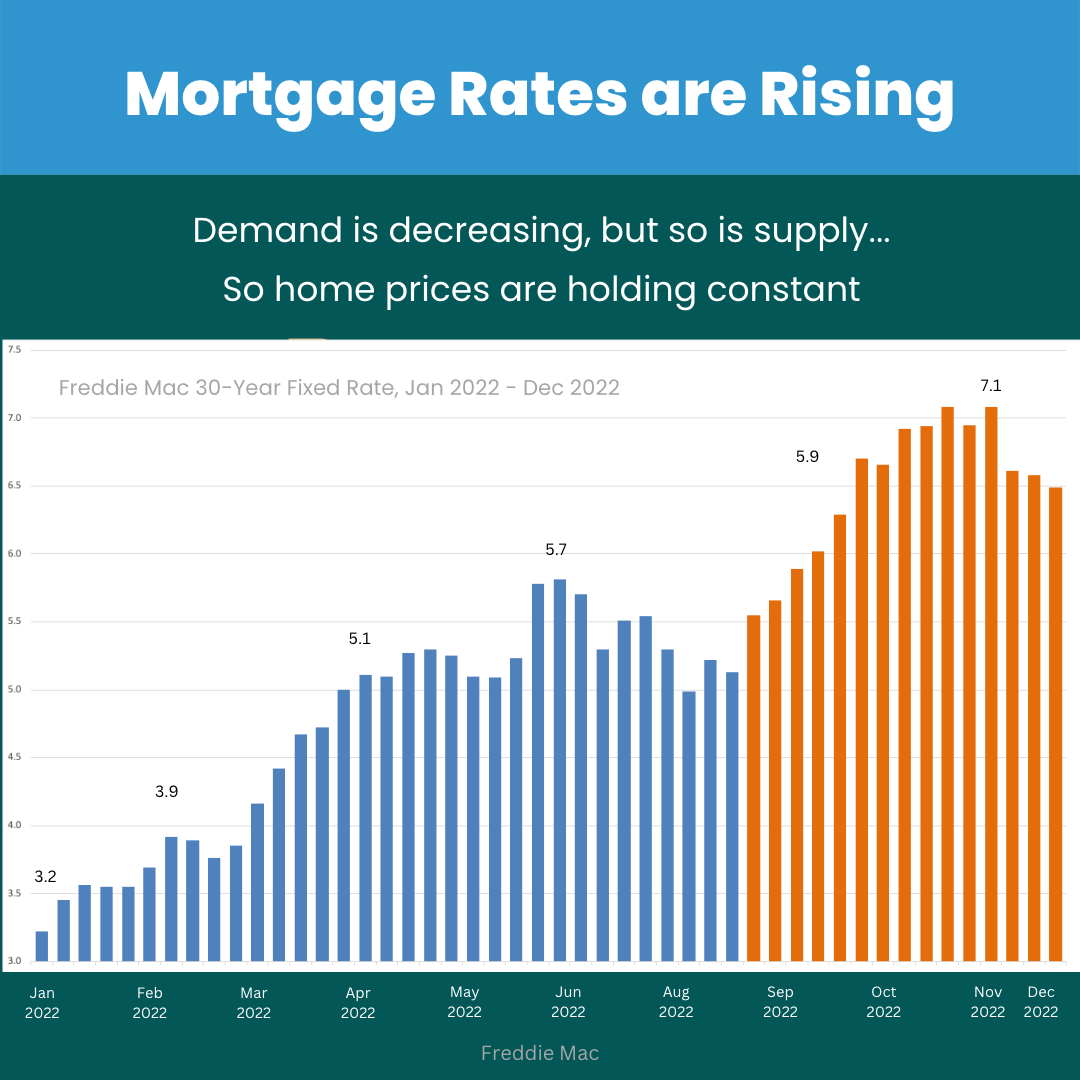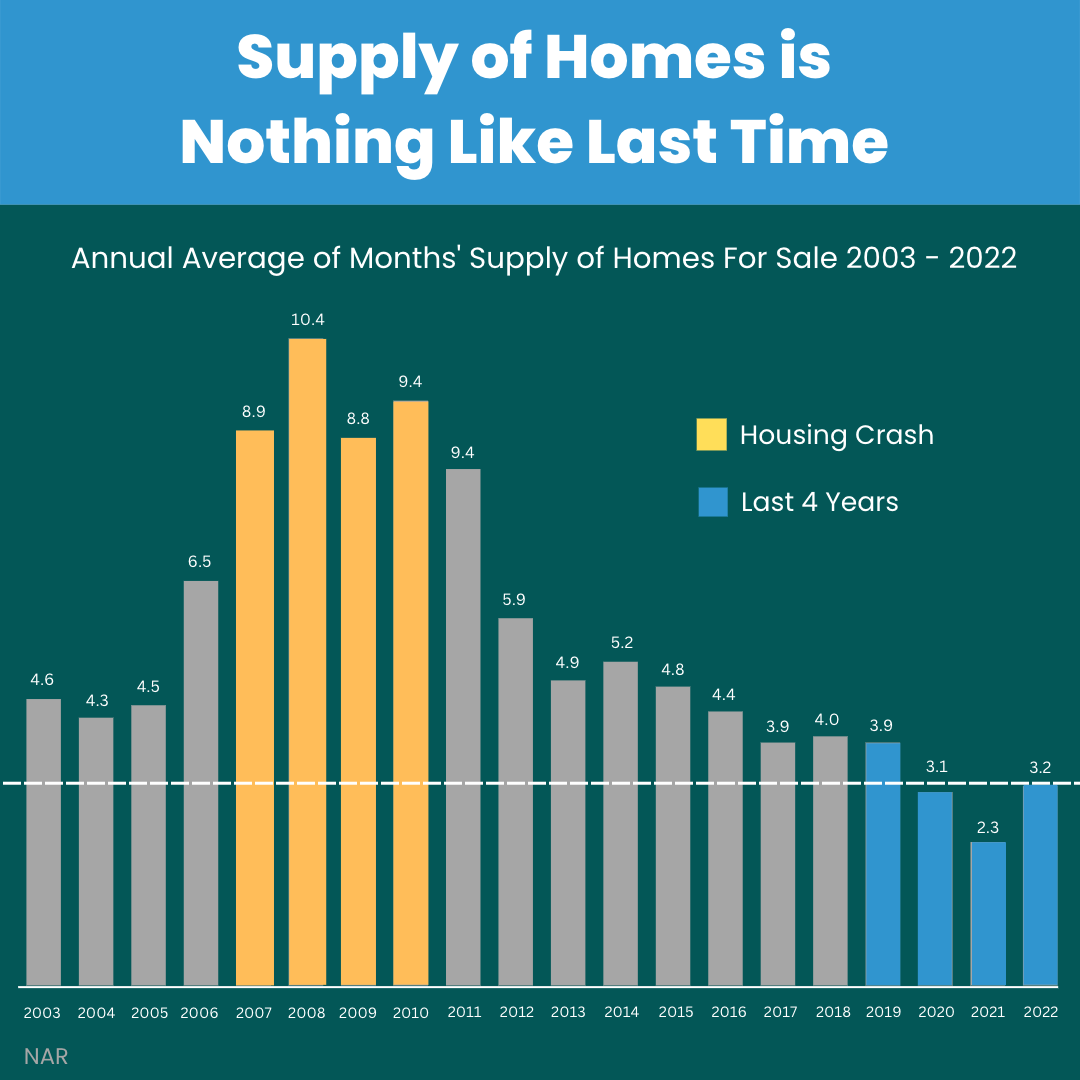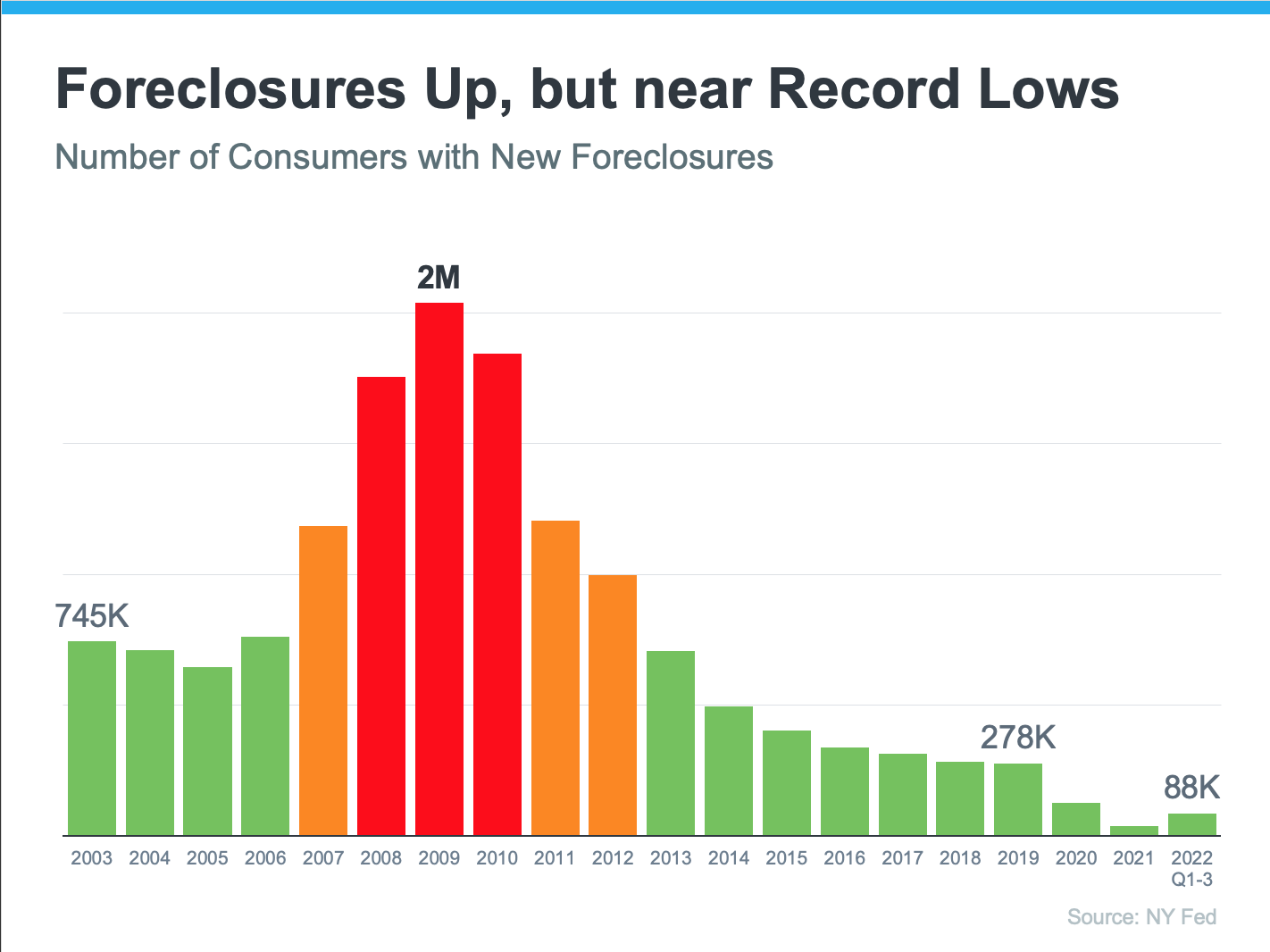Rosa Meza blog posts

Status of Real Estate headed into 2023
Jason Lewris from Parcl states, “In the absence of trustworthy up to date information, real estate decisions are increasingly being driven by fear, uncertainty and doubt.”
Real estate decisions can be hugely consequential for consumers and for businesses. If you don’t know the truth about the market you can make an irrational decision. If you read a headline or somebody tells you something that isn’t true it can cause you to be fearful, uncertain, or doubt whether you should or shouldn’t buy a home. This fear can cause you to make a catastrophic mistake. Irrational decisions can end up costing thousands of dollars over the long term.
As an expert realtor, my job is to educate you with the facts of the market, and help you feel confident about your real estate decision, one way or another. This month’s blog post is about the current state of the economy, and what we can expect for 2023. So lets dive in and see what the data tells us, and what history suggests may happen in 2023.
Mortgage Rates
2022 was a unique year as it pertains to mortgage rates. Mortgage rates have more than doubled in last 12 months. That has never happened before in a calendar year. The pain that people are feeling is not necessarily because rates have gone up from historically low levels, but because rates are rising so fast. This is causing people to pause their plan, and ask the question, “Do I really want to buy right now?” The result is a cool down in the market. The big question people are asking is, will mortgage rates keep rising?

At the end of the day the rapid increase in mortgage rates is all about inflation.
The Federal Reserve is making moves to raise the federal funds rate. They’re trying to lower inflation and slow down the economy. The FED doesn’t control the mortgage rates, but mortgage rates tend to follow the Fed. And that’s exactly what’s happening. It’s what we’ve been saying for the bulk of the year now that while inflation is high, mortgage rates are going to remain high. The good news is we’re not expected to see this exponential increase as we continue to go forward. We are not talking about mortgage rates doubling again next year.
This leads to the question of whether or not a recession is around the corner. In a recent survey the Wall Street Journal reports 63% of economists feel that there’s going to be a recession sometime over the next 12 months.
If a recession does arrive sometime in 2023, what does that mean for the housing market? It’s important for consumers to be educated and avoid falling prey to knee jerk reactions and fear. There is a lot we can learn from history. Keep in mind that a recession does not mean falling prices. In four out of the last six recessions in this country, home prices actually increased.
Now, we all remember the housing crash in 2008, and I think that’s fresh on everyone’s minds and people are fearful of that. But we have to remember we have a very different landscape right now when it comes to inventory, when it comes to lending standards, and when it comes to home equity. These factors are driving the housing market in a different direction here in 2022 than we had in 2008. We are in a much better situation now than we were back then.

If a recession is in play, we have to put this in context. History tells us that a recession more likely means falling mortgage rates. In the last six recessions, mortgage rates have also dropped each time. When the word “recession” is heard, there is frequently a lot of emotional reactions, but history also shows us that if the economy does go into a recession, mortgage rates will decrease, helping to stabilize home prices. We are keeping our eye on rates, because there is a lot of fear and uncertainty in the market right now.
Home Prices
So what does all of this mean for home prices? Let’s take a look at what Redfin says, “For those bearish folks eagerly awaiting the home price crash, you’ll have to keep waiting. As much as demand is pulling back, supply is as well. And that’s reducing downward pressure on prices in the short run.”
What does this mean? This means houses are staying on the market longer. We’re not seeing an influx of new listings. There is still more demand than there is supply, which makes it a seller’s market.
Some experts are projecting a little bit of appreciation in 2023. But other experts are projecting slight depreciation. So across the board it’s; a little bit up, a little bit down, depending on how experts are looking at it. We feel those overheated markets where prices went up so rapidly during the pandemic may see a downward in prices this year, while other markets are that didn’t see a rapid rise, will hold steady. When we average these out across the year, we predict roughly flat home price appreciation for 2023. And when 2024 arrives we expect to return to more normal levels of home price appreciation.
Foreclosures
If you look at foreclosure data going back to 2005, the data shows something very interesting. Ever since 2010 the number of foreclosures have decreased in the United States, and there is a reason for that. Leading up to the financial crisis of 2008, lending standards had been loosened, with the goal of increasing home ownership. This caused more people to buy houses that were not really qualified to get a loan. Over time more and more people couldn’t pay their loan and defaulted on their mortgage, which ultimately led to the financial crash of 2008. Coming out of the financial crisis of 2008, lending standards became a lot stricter, which resulted in a better qualified borrower. Aside from the covid years, every year since 2010 we have seen less and less foreclosures in the United States.

Conclusion
Inflation hit 2022 hard and mortgage rates rose rapidly as a result. The good news is, we don’t expect that to continue in 2023, at least not at the same pace it did this past year. Most economists expect 2023 will see some sort of recession. But just because we experience a recession, does not mean that home prices will decrease. As we stated above, in four of the last six recessions home prices actually increased. We can learn a lot from history, and we are in a very different situation today than we were in 2008. Today, home supply is very low, compared to 2008 when home supply was at an all-time high. That supply is keeping prices stable, and we expect that to continue in 2023.
If you are interested in making a move but are feeling fearful of the economy and all the news you have been hearing lately, rest assured that things may not be as bad as they appear. If you have any questions about real estate, please feel free to give me call, and we can talk through your specific situation.
Sources:
https://blog.firstam.com/economics/
https://www.fanniemae.com/
https://www.bankrate.com/
https://www.nar.realtor/

Rosa Meza

7 Ways You Can Share the Spirit of the Season
This time of year our homes are filled with lights, laughter and joy as we celebrate the holiday season once again. Trimming trees, sharing gifts, stockings by the fireplace, all little things that warm our hearts and bring back childhood memories.
The joy that starts in our home can be spread outward into our community as we share the season of giving with those around us. If you’ve always been wanting to reach out and share with others, but haven’t known how to start, here are some ideas to get you started! Most of these things can be done with little effort but will go far in spreading joy to those around you.
Host a Holiday Party
If you’ve never done this before it can sound daunting, but you can actually do this without too much work or expense.
Set up a dessert night! You provide the tableware and hot drinks. Invite neighbors, family and friends and ask everyone to bring their favorite dessert. Put on some holiday music and let everyone mingle and enjoy an evening with friends.
If you want a full meal you can still do this simply by setting up a baked potato or nacho bar. Have lots of toppings! Provide nametags and some simple games or a have everyone bring a small item or ornament for a gift exchange.
Most people decorate their home this time of year with holiday decorations, trees and lights so it’s a perfect time to invite people into your home for a small festive gathering.
Support First Responders
Most people get the holidays off to spend with their families, but there are a group of essential workers that don’t always get to do that. Plan to drop off a Christmas meal or tray of cookies to your local police station, fire station, hospitals or anyone else that you know will be working that day. One group of neighbors collaborated to bring a meal each day in December to their local fire station. Find a simple way to honor and help those who dedicated their lives to serving their community. Collect stuffed animals and drop them off at any of these locations. First responders can keep some in their vehicles and use them to comfort children that may be involved in accidents or other incidents. Hospitals also appreciate these to give out to children, especially during the holiday season.
Bags for Homeless
Put together goodie bags to pass out to homeless individuals you may encounter. You can pick up any kind of reusable tote bag at a local dollar store or you can use grocery bags or gallon zip lock bags and fill with some of the following items:
-
Water Bottle
-
Toothpaste/Toothbrush
-
Beef Jerkey
-
Granola Bars
-
Socks
-
Gum/Mints
-
Nail Clippers
-
Lotion/Hand Sanitizer
-
Baby Wipes
-
Crackers and Cheese or Peanut Butter Packets
-
Tuna and Cracker Packets
-
Deodorant
-
Fleece blanket
For a special touch, add a handwritten note of encouragement, hot chocolate or hot ciders packets, and a few dollar bills. You can keep these in your car year round to distribute, but during the holiday season this can be an especially great way to share a gift of kindness with those around you.
Treats for Your Mail and Package Delivery People
With Amazon and online shopping being so popular, you may have deliveries at your house often throughout the month. Delivery drivers work long hours and often into the night. Show them your appreciation by putting out a basket of snacks and drinks by your front door. Post a note somewhere easy for them to see to say thank you and suggest they take a treat for the road.
Tip Generously
We often race through our list of holiday activities and shopping to get everything done quickly. A trip to your local coffee shop, a bite to eat, getting a haircut, an uber order for dinner. We run into people all day long who continue to serve with a smile. The holidays are a perfect time to show them some extra gratitude by tipping generously. Everyone could use a little extra cash around the holidays. If you can afford it, be generous. Your kindness will go a long way and be a blessing to others.
Quoting from an article in US News & World Report, “Holiday tips can vary depending on the service, your relationship with the worker and regional customs. "It should be something more meaningful than just your change," Gottsman says.
The following represent generally accepted holiday tipping standards, according to Gottsman:
-
Restaurant delivery drivers: 20% of the total bill or $5, whichever is higher.
-
Babysitters or nannies: One evening or one week's pay, respectively.
-
Hairstylists or beauticians: Equivalent to one visit.
-
Door attendants: $20 to $100, depending on the level of service provided.
-
Maintenance workers such as housekeepers and landscapers: One week's pay.
-
Repair people: $20 to $100.
-
Newspaper carriers: $10 to $30.
-
Trash collectors: $10 to $25 per person, if allowed.
-
Dog walkers: One day or week's pay.
-
Dog groomers: Equivalent to one visit
Helping a Neighbor
What better time than the holiday season to reach out to help a neighbor in need. Many of your elderly neighbors may find keeping up with their yardwork difficult. While you are taking care of your own lawn, offer to help rake leaves or shovel snow from their driveway. If you have a neighbor that has been sick or had surgery, dropping off a meal or offering to pick up something from the grocery store for them can be a huge help.
If you don’t know your neighbors, the holiday season is a perfect time to take a plate of cookies and go introduce yourself. A simple kind gesture can go a long way in building relationships and bringing some holiday cheer to the people around you.
Volunteer at a local organization
Visit a nursing home – Some elderly find the holidays to be a lonely time. Grab some friends and bring a plate of cookies or take your kids along to sing a few Christmas carols, visit and spread some holiday cheer.
Serve at an area shelter – Contact a local shelter in your area to volunteer to serve a meal or help with a project. This sounds easy enough but it’s a popular thing for families to do during the holidays, so make sure to call in advance to arrange a time.
Collect winter clothes for the homeless – Purchase some new items, or gather any extra winter jackets, gloves, scarves, boots or items that you may not be using and donate them to a homeless shelter. You can also keep some in your car to give out if you come across someone that could use the extra warmth.
Drop off blankets and new toys at a children’s hospital – Unfortunately some kids will end up in the hospital over the holidays, some briefly and others for an extended period of time. A new toy, gift or activity book can really brighten their day.
Though the holiday season can be hectic and overwhelming, taking the time to slow down and be intentional about serving others may be just what you need to remind yourself and those around you what the Spirit of the season is all about.
Sources:
https://themadf.org/remembering-
Rosa Meza






